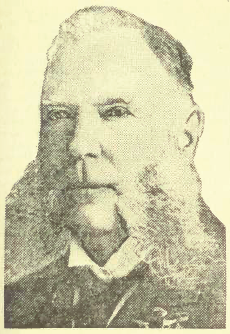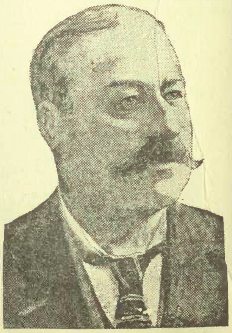Related Research Articles

Toronto City Council is the governing body of the municipal government of Toronto, Ontario. Meeting at Toronto City Hall, it comprises 25 city councillors and the mayor of Toronto. The current term began on November 15, 2022.

John Shaw was Mayor of Toronto from August 6, 1897, to January 1, 1899.

John McMurrich was a businessman and political figure in Canada West and later Ontario.
George Ben was an Ontario lawyer and political figure. He represented Bracondale and then Humber in the Legislative Assembly of Ontario from 1965 as a Liberal member until his defeat in the 1971 provincial election. Ben was a member of Toronto City Council in the early 1960s, representing Ward 5, and returned to council in the 1972 municipal election. He was re-elected for the final time in 1978, and died in office on December 17, 1978.

William Barclay McMurrich was a Canadian lawyer and politician. He was the mayor of Toronto from 1881 to 1882. He was also a member of the Orange Order in Canada.

Ernest Albert Macdonald was Mayor of Toronto in 1900.
The Board of Control of Toronto, Ontario, Canada, was a part of its municipal government until it was abolished in 1969. It served as the executive committee of the Toronto City Council. When it was initially created in 1896 by mandate of the provincial government, it consisted of three Controllers appointed from and by the aldermen, and presided over by the Mayor of Toronto. Beginning in 1904, the Board of Control was directly elected by the city's electorate and consisted of four Controllers, presided over by the Mayor. Each voter could vote for up to four candidates, and the four with the most votes were elected. By tradition the controller who received the most votes would get the powerful budget chief position.
Municipal elections were held in Toronto, Ontario, Canada, on January 1, 1913. H.C. Hocken was elected to his first full term as mayor.
Municipal elections were held in Toronto, Ontario, Canada, on January 1, 1912. Mayor George Reginald Geary faced no opponents and was acclaimed for reelection.
Municipal elections were held in Toronto, Canada, on January 2, 1899. Mayor John Shaw was elected for his third consecutive term in office defeating opponent Ernest A. Macdonald and Third Ward Alderman George McMurrich. It was Macdonald's third unsuccessful attempt to be elected mayor, and McMurrich's second. Macdonald would succeed in his fourth attempt, at the 1900 Toronto municipal election.
Municipal elections were held in Toronto, Canada, on January 4, 1892. Robert John Fleming, was elected to his first term in office, defeating financier and Board of Trade president Edmund Boyd Osler, John McMillan, and former mayor and Member of Parliament James Beaty.
Municipal elections were held in Toronto, Canada, on January 6, 1896. Former mayor Robert John Fleming was elected, defeating Alderman John Shaw. Fleming was considered a reformer while Shaw was considered the candidates of the Conservative establishment.
Municipal elections were held in Toronto, Canada, on January 4, 1897. Mayor Robert John Fleming was re-elected, defeating Alderman George McMurrich. Fleming's principal campaign pledge was a promise to build a bridge to extend the street railway system to the Toronto Islands, as well as readjusting water rates and reorganizing the boards of education. This was Fleming's fourth mayoral victory, his second in a row. He pledged that this would be his final term in office
Municipal elections were held in Toronto, Canada, on January 3, 1898. Mayor John Shaw was first elected mayor by Toronto City Council after his predecessor, Robert John Fleming, resigned on August 5, 1897, to accept an appointment as assessment commissioner. Shaw was returned to office in the 1898 election by defeating former alderman Ernest A. Macdonald, who was making his second attempt to be elected mayor. The main issues of both the mayoralty and aldermanic campaigns were a proposal to build the James Bay Railway from Toronto to James Bay and proposals to get cheap hydroelectric power from Niagara Falls so that the city could have access to cheap electricity, with Shaw favouring both proposals, along with almost all aldermen who were elected.
Municipal elections were held in Toronto, Ontario, Canada, on January 1, 1900. Incumbent Mayor of Toronto John Shaw chose not to stand for a third term. Former Alderman Ernest A. Macdonald was elected mayor after having been unsuccessful on three previous attempts. He defeated Member of Parliament Edward Frederick Clarke, who was also a former mayor, and Second Ward Alderman John Hallam.
Municipal elections were held in Toronto, Ontario, Canada, on January 6, 1902. In the mayoral election, Mayor Oliver Aiken Howland won a second term in office defeating William Findlay Maclean, a sitting Member of Parliament and founder of The Toronto World newspaper, who campaigned on a platform of public ownership, regulation and control over utilities such as waterworks, gasworks, electricity, and telephone, and the privately owned Toronto Railway Company, as well as promising nighttime and Sunday streetcar service, and against temperance measures. Maclean's intention of simultaneously holding both the mayoralty and a seat in the Canadian House of Commons was a factor in his defeat. Another issue that hurt Maclean was his support for softening Toronto's blue law to allow for Sunday streetcar service. The third candidates was Charles Woodley who was the standard-bearer of the Socialist Labor Party.
Municipal elections were held in Toronto, Ontario, Canada, on January 1, 1904. Thomas Urquhart was acclaimed to a second term. 1904 was the first time the Toronto Board of Control, the executive committee of Toronto, was directly elected, after the Ontario legislature passed a law requiring municipal boards of control to be chosen through direct election by the municipality's voters. Previously, Toronto City Council chose four alderman to sit on the body, which would be chaired by the mayor.
Municipal elections were held in Toronto, Ontario, Canada, on January 1, 1906. The position of Mayor of Toronto was open as the incumbent, Thomas Urquhart, did not stand for re-election. Alderman Emerson Coatsworth defeated Controller Frank S. Spence.
Municipal elections were held in Toronto, Ontario, Canada, on January 1, 1907. Incumbent Mayor of Toronto Emerson Coatsworth was re-elected to a second one-year term, defeating Socialist Party of Canada candidate James Lindala and Robert Buist Noble, who was also a socialist. Lindala's strong showing and the mayor's reduced vote total was seen as a repudiation of Coatsworth with The Globe newspaper declaring on its front page "that an unknown Socialist tailor of foreign birth should poll over eight thousand votes for the Mayoralty of Toronto against a barrister of irreproachable personal character, who at one time represented his native city in Parliament... proves how utterly repugnant has been the jellyfish administration of the past year." Coatsworth did not run for a third term the following year.
References
- ↑ Greater Toronto and the Men Who Made It (Toronto: Interprovincial Publishing, 1911, p. 115
- ↑ Van Die, Marguerite (2013). "Protestants, the Liberal State, and the Practice of Politics: Revisiting R.J. Fleming and the 1890s Toronto Streetcar Controversy". Journal of the Canadian Historical Association / Revue de la Société historique du Canada. 24 (1): 89–129. doi: 10.7202/1024998ar .
- ↑ "Ald. M'Murrich Lost Battle with Death", Toronto Daily Star [Toronto, Ontario]. 8 Sep 1913: p. 11.
- ↑ "Canada, Ontario County Marriage Registers, 1858-1869", , FamilySearch (https://www.familysearch.org/ark:/61903/1:1:Q2T1-1Q6J : Tue Oct 24 05:18:52 UTC 2023), Entry for George Mc Murrich and John Mc Murrich, 03 Jun 1868.
- ↑ "Ald. M'Murrich Lost Battle with Death", Toronto Daily Star (1900-1971); Toronto, Ontario [Toronto, Ontario]. 08 Sep 1913: 11.